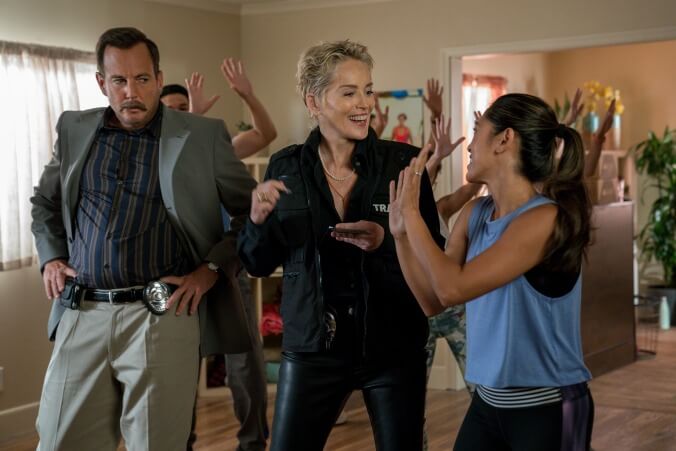Will Arnett’s Murderville painstakingly blends improv comedy with a crime show
For Netflix’s improv crime comedy, the audience needs to be as game as the celebrity guests

It can be fun to see how our favorite performers and celebrities would act in the strangest circumstances, to look behind the media training to the unfiltered personality lurking beneath. Netflix’s Murderville throws celebrity guests into immersive chaos in each episode, its crime-based improv landing like a late-night sketch crossed with a high-budget murder mystery dinner. When the guests are as game as the actors around them, it’s delightful fun—though, like a live improv show, the audience has to arrive prepared for absurdity.
Will Arnett leads the show as homicide detective Terry Seattle, a bumbling policeman who’s divorcing his police chief and is still reeling from the death of his partner (the show’s best cameo, limited to a photo). Each episode sees a different celebrity guest star join Seattle’s latest case without receiving as much as an outline of the crime. They learn everything on set, cameras rolling, with Seattle tossing out random commands that seem straight from a rowdy audience. It’s also up to the guest to name the killer after deciphering all the clues and interrogating the suspects.
An adaptation of the BBC3 series Murder In Successville, Murderville simplifies the premise by having the suspects be random characters with links to the deceased—in the series premiere, the case of a dead magician expands to include a rival, a former assistant, and a Moms Against Magic association. The suspects are often the best part of the show, thanks to some of Hollywood’s best comedians and character actors making the most of whatever Arnett and the celebrity guests throw at them.
Arnett commands the troupe with a variation of his BoJack Horseman growl. He’s the show’s version of a straight man, keeping the farce moving and making suggestions while staying in character. He’s excellent at feeding off the energy of the guests; the best episodes allow Arnett to just play, morphing from a rebel paired with a goody two-shoes one episode to an admirer trying not to fall in love with his partner the next. Along with Arnett’s performance, Murderville depends on some overarching details of Seattle’s life to keep the procedural connected. The recurring cast—Haneefah Wood as the police chief, Lilan Bowden as the forensic scientist, and Philip Smithey as another precinct cop—are great in their supporting roles, and it’s fun to watch their characters’ relationships with Seattle evolve throughout the six episodes.
Season one’s celebrity guests are Annie Murphy, Conan O’Brien, Ken Jeong, Kumail Nanjiani, Marshawn Lynch, and Sharon Stone. We catch their reactions to the strangest situations, hints of their personalities coming out in their choices. It’s like seeing how your partner travels: You never know how they handle an upset until they’re in the midst of one. A great way to learn about performers is seeing how they react when they’re told to act like the president of Finland. (Marshawn Lynch and Sharon Stone are surprisingly fearless.)
For any true-crime fans interested in solving the cases, the show’s mysteries are about as random as the commands from Seattle. The clues aren’t very well-defined, leaving both the guest-star recruit and the viewer scrambling to figure out who’s the killer. The point of the show is the improv comedy, which could have been accomplished without making another cop show. Murderville almost solves that quandary by poking fun at Seattle’s ineptness the whole way through, but the show requires the audience not to think too much about how the mystery gets solved.
Murderville recreates the vibe of an improv show in a half-hour narrative, a fun departure from game or sketch form. The constant spontaneity is there, plus the feeling of awe when a guest gets totally into the scene. It also adopts the nature of live improv or stand-up comedy where the interlopers, both the guest and the audience, have to accept the circumstances and be open to the comedy. But in the few instances that the recruits are less credulous—where they appear to find Arnett’s requests or a suspect’s motive as foolish—the illusion that the players have so painstakingly built is broken.
When everything melds together on Murderville, with the guests feeling like part of the troupe instead of a name air-dropped in, it’s a very enjoyable watch. When the celebs aren’t a great fit, it’s up to Arnett and the cast to keep everything going, and they often do. In the end, it falls under the nature of any improv show: The best moments see everyone, from the guests to the audience, dedicated to keeping this fever dream going.